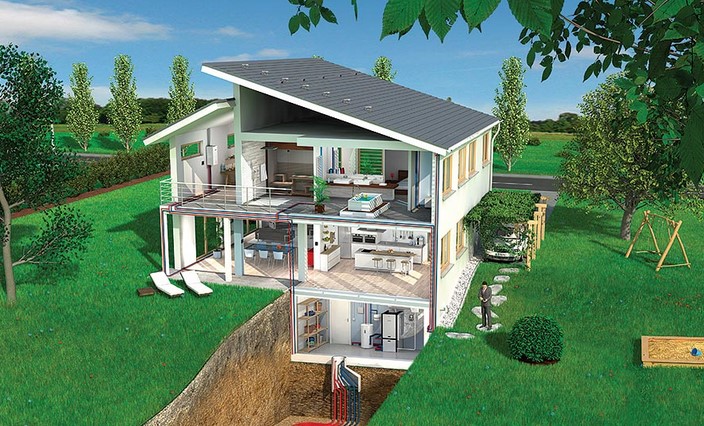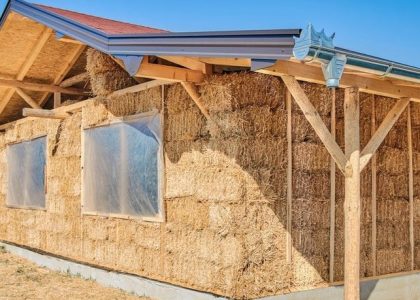
In recent years, the push for sustainable living has gained momentum as more individuals and communities embrace eco-friendly technologies. Among these innovative solutions, geothermal heating systems have emerged as one of the most effective and environmentally conscious methods of heating and cooling homes. By utilizing the Earth’s natural heat, geothermal heating systems offer a promising alternative to traditional fossil-fuel-based systems. This technology not only reduces the carbon footprint of homes but also provides long-term energy efficiency. This article explores how geothermal heating systems work, the benefits they provide, and why they are an excellent choice for eco-friendly homes.
Understanding Geothermal Heating Systems
Geothermal heating systems operate based on the simple principle of transferring heat from the Earth’s core to a building. Below the surface, the Earth maintains a nearly constant temperature throughout the year, regardless of the weather conditions above ground. This makes the ground an excellent source of renewable energy. Geothermal systems take advantage of this stable underground temperature by using a heat pump that circulates a fluid through a series of underground pipes known as a ground loop. This system extracts heat from the Earth during the winter months to warm the home, and in the summer, it reverses the process, transferring heat out of the house to cool it.
The ground loop, which is a network of pipes buried in the Earth, is the key component of the geothermal heating system. These loops can be installed horizontally or vertically depending on the available space and the geothermal characteristics of the property. A vertical loop system is more suitable for smaller properties or homes with limited land space, while a horizontal system is often used in larger properties where there is more room for excavation.
The heat pump, another crucial component, is located inside the house and is responsible for moving the heat to and from the ground loop. The heat pump is a highly efficient device that works on the same principle as a refrigerator, transferring heat from one place to another. The system uses electricity, but the amount of energy consumed is significantly lower than conventional heating and cooling methods because geothermal systems produce more energy than they consume.
Advantages of Geothermal Heating Systems for Eco-Friendly Homes
- Sustainability and Reduced Carbon Footprint
One of the most significant advantages of geothermal heating systems is their sustainability. These systems utilize the Earth’s renewable energy, making them an eco-friendly option for homeowners who are looking to reduce their environmental impact. By using geothermal energy, homeowners can significantly reduce their reliance on fossil fuels, which are the primary sources of greenhouse gas emissions. As a result, geothermal systems help mitigate climate change and contribute to a cleaner environment.
Moreover, geothermal heating systems have a minimal carbon footprint compared to traditional heating systems. Unlike gas or oil heating systems, geothermal systems do not burn fuel, eliminating harmful emissions that contribute to air pollution and global warming. This makes them an excellent choice for anyone looking to make their home more eco-friendly while also reducing their energy consumption.
- Long-Term Cost Savings
Although the initial installation of a geothermal heating system can be more expensive than traditional systems, the long-term cost savings are substantial. Geothermal systems are highly efficient, often reducing energy bills by as much as 70% compared to conventional heating methods. Because the system relies on the Earth’s natural temperature rather than burning fuel, it operates with lower energy consumption. Additionally, geothermal systems require very little maintenance and have a long lifespan, often lasting 20-25 years or more. This makes them a cost-effective option in the long run, as they provide consistent savings over the years.
Furthermore, many governments offer incentives and tax rebates to encourage the adoption of renewable energy technologies such as geothermal systems. These financial incentives can help offset the initial installation costs, making geothermal heating systems even more affordable for homeowners.
- Energy Independence and Reliability
Geothermal heating systems also offer a level of energy independence that traditional heating systems cannot provide. Since they are powered by the Earth’s internal heat, homeowners are less dependent on fluctuating energy prices, which can be affected by geopolitical events, market trends, and environmental factors. This makes geothermal systems an attractive option for those who want to avoid the volatility of traditional energy sources such as oil, natural gas, or electricity.
Another advantage of geothermal heating systems is their reliability. Unlike conventional heating systems that may fail during extreme weather conditions or rely on external fuel supplies, geothermal systems are less susceptible to interruptions. The underground heat source remains stable year-round, ensuring that homes remain warm in the winter and cool in the summer, regardless of outside temperatures.
Overcoming Challenges of Geothermal Heating Systems
While geothermal heating systems offer numerous benefits, there are a few challenges to consider. One of the main hurdles is the upfront installation cost. As mentioned earlier, geothermal systems tend to be more expensive to install compared to traditional systems, mainly due to the cost of drilling and installing the ground loop system. However, with the energy savings and government incentives available, many homeowners find that the long-term financial benefits outweigh the initial investment.
Another challenge is the need for suitable land for installing the ground loop. For homes located on small plots of land, a vertical loop system may be the only feasible option. Additionally, the installation process can be disruptive, requiring excavation work that may take several weeks to complete. However, these challenges are often outweighed by the system’s long-term energy efficiency and environmental benefits.
Geothermal heating systems are a powerful tool for homeowners seeking to reduce their environmental impact while maintaining energy efficiency. By harnessing the Earth’s natural heat, these systems provide an eco-friendly and cost-effective alternative to traditional heating and cooling methods. While the initial installation costs can be higher, the long-term benefits in terms of energy savings, sustainability, and reliability make geothermal systems a smart investment for eco-conscious homeowners. As more people recognize the importance of sustainable living, geothermal heating systems will continue to play a crucial role in creating greener homes and communities. If you’re considering a new heating system, investing in geothermal heating systems could be one of the best decisions you make for both your home and the planet.




